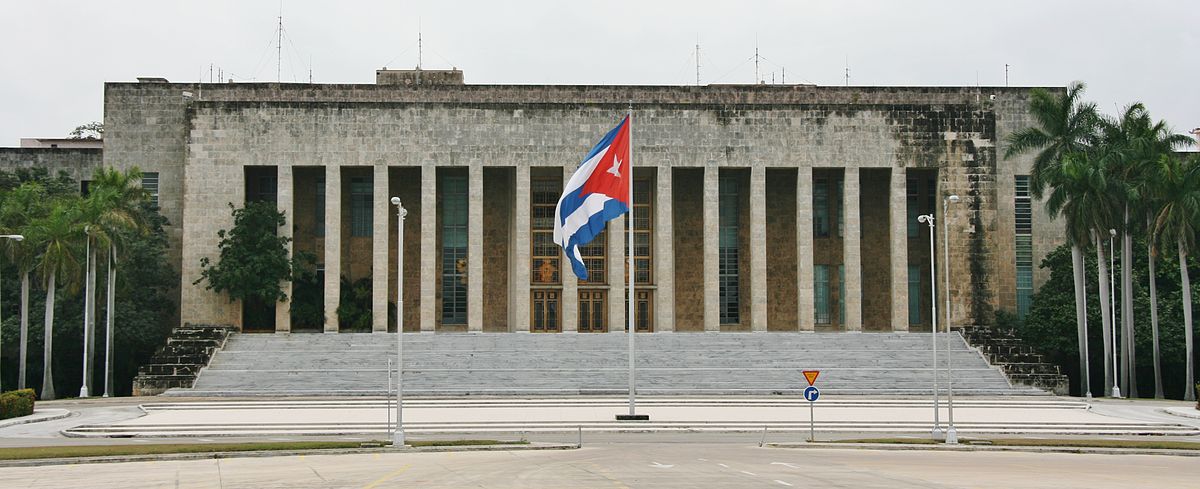The Case Against the Cuban Embargo

- "Comité Central PCC" by Marco Zanferrari -
- Flickr. Licensed under Creative Commons Attribution-Share Alike 2.0 via Wikimedia Commons
Much has changed for the United States in the last fifty years. We won the Cold War, suffered a great and defining national tragedy on 9/11, and today are in the midst of our third military action in Iraq. However, US foreign policy has remained constant throughout the last half of a century in one major way: the Cuban embargo. While this important centerpiece of US foreign policy has grown less topical in the last few years, its continued existence is more controversial than ever. A survey commissioned by the Atlantic Council released in February found that 56% of Americans and 62% of Latinos believe that the United States should alter its foreign policy toward Cuba. At the same time, US-allied nations in the European Union are in the midst of trade talks with Cuba after decades of holding to US-led trade restrictions. The Cuban embargo began in the early 1960s following Fidel Castro’s rise to power in the Cuban Revolution of 1959 and the corresponding government seizures of US-owned property. By implementing the embargo, US officials intended to isolate Cuba diplomatically and economically while attempting to overthrow the new communist regime of a traditionally US-allied country. Particularly following the infamous Bay of Pigs event in 1961 and the Cuban Missile Crisis in 1962, the embargo on a clearly hostile communist state—for better or worse—matched the larger goals of US foreign policy during the Cold War.
But the conditions that originally led to the Cuban embargo could not be further from the reality that the United States now confronts in 2014. The Cold War is over, and while both Russia and China are demonstrating increasing interest in forging diplomatic and economic ties with Latin American countries, neither country plays anywhere near as great a role in the region—or in the world order, for that matter—as the United States. Furthermore, while the US State Department maintains Cuba’s classification as a state sponsor of terror, the Department’s most recent annual report on the subject released in May demonstrated no evidence that the country was providing assistance to terrorist groups. Simply put, Cuba no longer poses a threat to the US government or its security interests.
On the contrary, Cuba’s government has demonstrated clear signs of liberalization. While the country is still decidedly communist, it recently inaugurated a reform of its real estate sector that allows the sale of homes and other property. In addition, the government has begun to give its citizens increasing flexibility to start their own businesses. Although analysts from the Center for Democracy in the Americas still expect these reforms to continue slowly, it seems that the Cuban government is formulating policy with greater attention to economic results and less to the communist ideology from which its policy had typically been wholly derived in the past. Even Cuba’s relatively weak human rights record has shown signs of improvement in recent years, notably when it released over fifty political prisoners and foreigners in 2010 and 2011. While on this account Cuba has far to go, the United States would be far better equipped to support human rights in Cuba by establishing diplomatic ties with Cuba and advocating for them directly.
Moreover, Cuba is making an increasing effort to play a positive role in both Latin America and the world. Since 2009, Cuba has maintained diplomatic ties with every other country in Latin America. It also plays an important regional role by providing much-needed doctors and medical expertise to Venezuela and Brazil, in addition to having worked in recent years to help the Colombian federal government negotiate a peace with the revolutionary FARC (Revolutionary Armed Forces of Colombia People's Army) forces. Cuba also participates in important regional organizations like the Rio Group and CELAC (Community of Latin American and Caribbean States), of which it is a founding member. In this inclusionary chapter in Cuba’s foreign relations, basing US policy in Cold War thinking makes less sense than ever.
But perhaps the most important way in which the status quo fails to serve the present lies in its indirect results, namely by propagating the notion that the United States consistently writes off its Latin American neighbors and interferes in their affairs. Indeed, the Cuban embargo is just one example of how the United States has failed repeatedly to foster a productive relationship with its Latin American partners. Most recently, the US government failed to do anything to prevent or minimize the fallout of the second Argentinian government default since 2001. The summer 2013 forced landing of Bolivian President Evo Morales’ plane similarly demonstrated the degree to which the United States continues to push around its Latin American neighbors even after its military incursions of the 20th century have stopped. By removing the embargo and establishing diplomatic ties with Cuba, the United States would relieve itself of long-standing regional animosity generated by its policy of isolating Cuba.
The United States needs a new policy toward Cuba. So much has changed since the original imposition of the embargo that the policy no longer has any strategic goal; it is merely a holdover from the past. Without a renewal of diplomatic and economic ties with Cuba, the United States only stands to lose both by continuing to live in an anachronism and by further distancing itself from the emerging Latin American powers with which Cuba enjoys strong relations.

